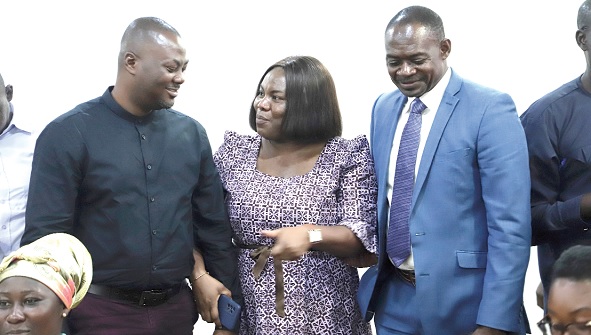
Young people exchange sex for favours — Discussants
It has been established that some young people in the country exchange sex for needs such as food, education and sanitary pads without knowing the implications of their actions.
Those who were aware of the effect of their actions often did not have the choice to do otherwise because they wanted their needs met.
Discussants at a meeting to launch a sexual and reproductive health (SRH) programme in Accra have, therefore, advocated more awareness creation on SRH, including abstinence and the provision of available options for sexually active persons to prevent unplanned pregnancies and sexually transmitted diseases.
The three-year programme which was launched in Accra yesterday is targeted at young people in the Northern and Upper East regions.
Dubbed: Youth for Health (Y4H), the programme is being implemented in five other African countries and co-funded by the EU.
Present at the launch were stakeholders in healthcare delivery, traditional leaders, youth groups, civil society organisations and officials from the Ghana Health Service and the Ministry of Health.
They highlighted some sexual and reproductive health challenges for young people to include discrimination associated with accessing SRH services, limited access to sexual and reproductive health commodities, and information.
Objectives
It is aimed at expanding access to life-changing adolescent sexual and reproductive healthcare and rights (ASRHR) for the poorest and most marginalised adolescent girls, including those with disabilities in rural and hard-to-reach areas in Ghana, Ethiopia, Kenya, Sierra Leone, Tanzania and Zambia.
It would also build the capacity of beneficiaries to make informed choices about their sexual and reproductive health to prevent unintended pregnancies, unsafe abortions and also reduce their vulnerability to pregnancy-related complications and death.
Locally, it is co-implemented by Marie Stopes International Reproductive Choices and Youth Advocate Ghana, in collaboration with the Ghana Health Service and other partners.
Active population
The Country Director of Marie Stopes International Ghana, George Akanlu, said data from the Population and Housing Census indicates that 50 per cent of the country’s population of 30.8 million were 20 years and below with 17 per cent of them being sexually active.
He said the data also showed that 15 per cent of young people between 15 and 19 years old had ever gotten involved in unplanned or planned pregnancies, while 31 per cent of young people in the country had unmet needs for sexual and reproductive health services such as family planning.
The team leader of Macroeconomic and Trade EU delegation to Ghana, Timothy Dolan, said they were committed to promoting inclusive growth in young people.
“Our target audience are marginalised adolescent girls, including those living with disabilities in rural areas of the country,” he added.
For his part, the Paramount Chief of the Nanton Traditional Area in the Northern Region, Nanton Naa Mahamadu V, urged stakeholders to motivate young people to talk freely about their sexual and reproductive needs and challenges to receive the needed support.
“We will give the programme all the support it needs to succeed,” he assured.
